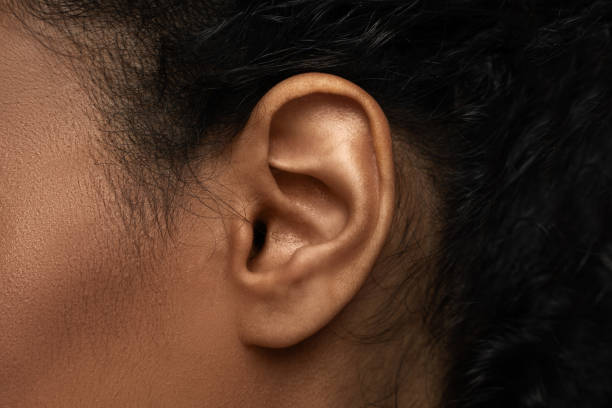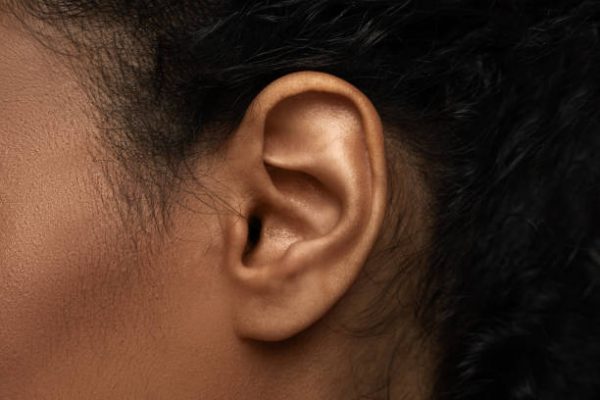The ear, often overlooked in daily health routines, is a remarkably delicate organ. While many of us don’t pay much attention to our ears until a problem arises, an ear infection can be as debilitating as any other type of infection. Proper ear care is crucial not only for hearing but also for overall well-being. Neglecting ear hygiene can lead to a range of issues, from painful infections to permanent hearing loss. Therefore, it’s essential to understand the importance of ear care, which includes regular cleaning, and to adopt cautious practices to safeguard this often-neglected yet essential sense organ.
Read more about Health
Why Shouldn’t You Use Q-tips for Ear Cleaning?
While using Q-tips (cotton buds) to clean ears is a common practice, it’s important to be aware of the significant risks associated with this method that often outweigh the perceived benefits. One major concern is the potential for ear canal damage. When Q-tips are used, they can inadvertently push wax deeper into the ear canal, leading to impacted wax and blockages that not only impair hearing but also cause discomfort and irritation.
Moreover, the use of Q-tips increases the risk of accidentally puncturing the delicate eardrum, resulting in pain, potential hearing loss, and even complications requiring medical attention. Medical professionals strongly discourage the use of Q-tips for ear cleaning and instead recommend safer alternatives to maintain ear hygiene effectively and without unnecessary risk or harm.
Safer Alternatives for Ear Cleaning
Ear Irritation Kits
These kits typically come with a bulb syringe or a specialized irrigation device designed to gently flush out earwax and debris using water or a saline solution.
Fill the device with warm water or a recommended ear-cleaning solution, then gently place the tip into your ear canal. You simply squeeze the bulb or activate the device to spray water into your ear canal, dislodging earwax and allowing it to drain out. Before using an ear irrigation kit, make sure to carefully read and follow the instructions provided to avoid any discomfort or injury.
Hydrogen Peroxide
Hydrogen peroxide is sometimes used as a home remedy for ear cleaning, particularly to help soften and remove excess earwax. However, it’s important to approach this method with caution.
Dilute the hydrogen peroxide with an equal amount of clean, warm water to reduce its strength and minimize the risk of irritation. Tilt your head to the side and gently pour a few drops of the diluted hydrogen peroxide into the ear canal. Allow the solution to sit in the ear for a few minutes. You may hear fizzing or bubbling sounds, which is normal. Allow the solution and softened earwax to drain out. Use a clean tissue to gently wipe away any excess solution and wax that comes out. Repeat if necessary.
Sign up for the Connect Nigeria daily newsletter
While hydrogen peroxide can effectively soften earwax, it may cause irritation or dryness for some individuals. If you have a history of ear problems or perforated eardrums, it’s best to avoid using hydrogen peroxide for ear cleaning.
Ear Drops
Ear drops are a convenient and effective way to manage earwax buildup and keep your ears clean. These drops contain special ingredients that gently soften earwax, making it easier to remove naturally or with gentle rinsing.
To use ear drops, tilt your head to the side and carefully administer the recommended number of drops into your ear canal. Wait a moment then, tilt your head to the other side to allow any excess drops and softened earwax to drain out. Always follow the instructions on the product and consult with a healthcare professional if you have any concerns or a history of ear issues.
Professional Ear Cleaning
Professional ear cleaning is a specialized service provided by healthcare professionals to safely and effectively remove excess earwax and address ear-related issues. During this procedure, a trained specialist uses specialized tools and techniques to gently clean the ear canal.
If you experience symptoms like hearing loss or ear discomfort due to wax buildup, seek professional help. Consult with a healthcare provider to determine if professional ear cleaning is suitable for you based on your individual ear health needs and concerns.
Conclusion
Ear wax is not necessarily a bad thing, as it protects and lubricates the ear canal, but its excess causes issues. Taking care of your ears is crucial for maintaining good overall health and comfort. Regularly check your ears for any changes or issues to catch problems early. Avoid the use of objects like Q-tips or other foreign items in your ears.
Register to attend the CN Business Mixer
When it comes to ear hygiene, opt for safe methods like using ear drops or seeking professional ear cleaning when needed. If you notice persistent ear issues such as wax buildup or hearing difficulties, don’t hesitate to consult a healthcare provider for expert advice and treatment. Always remember to handle ear hygiene with care and gentleness to safeguard your hearing and ear health.
Sources: | Medicalnewstoday.com | Healthline.com | Healthyhearing.com
Got a suggestion? Contact us: [email protected]


